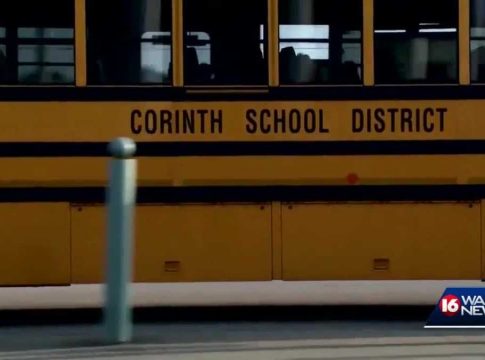Superintendent Indicted in Disturbing AI Child Pornography Case
The realm of artificial intelligence has opened new avenues for creativity and efficiency, but it has also exposed vulnerabilities, particularly in the context of child safety. A recent indictment against Edward Childress, the superintendent of the Corinth School District in north Mississippi, exemplifies the darker side of AI technology.
Key Developments: A Shocking Allegation
Childress faces serious allegations related to a case involving Wilson Frederick Jones, a former teacher at Corinth School District. The indictment claims that Childress knew about inappropriate material created using AI technology as early as November last year yet failed to inform the Mississippi Department of Education. Instead of reporting the issue, he allegedly allowed Jones to resign and was reportedly misleading when addressing the school board about the circumstances.
AI and the Risks to Children
This disturbing case revolves around the misuse of artificial intelligence to manipulate images, turning innocent pictures of students into explicit content. The technology used in this context highlights a crucial concern that echoes throughout the AI community: as these tools become more accessible, the potential for misuse grows significantly.
Understanding the Technology
Artificial intelligence has made remarkable strides in recent years, particularly in image processing. Tools that once required advanced expertise can now be wielded by individuals with minimal technical knowledge. This democratization brings creativity but also risks, particularly when it comes to ethical considerations, including the preservation of privacy and protection against exploitation.
The Wider Implications
This incident raises pressing questions about accountability in educational institutions, especially as schools increasingly rely on technology. How can districts better safeguard against potential abuses brought forth by emerging technologies? And what does this mean for the regulation of AI tools in sensitive environments such as schools?
Moreover, the case serves as a stark reminder that while AI offers unprecedented capabilities, it is imperative to establish robust ethical guidelines and oversight mechanisms to protect vulnerable populations—especially children.
Conclusion: A Call for Action
As society grapples with the implications of AI advancements, cases like this underscore the urgent need for comprehensive policies that address emerging threats. The focus must shift not only to harnessing the benefits of AI but also to mitigating its risks, ensuring that technological innovation safeguards rather than endangers our most vulnerable.
In light of such instances, education authorities must evaluate their oversight mechanisms and foster a culture of accountability, ensuring that the power of technology is wielded responsibly.

Writes about personal finance, side hustles, gadgets, and tech innovation.
Bio: Priya specializes in making complex financial and tech topics easy to digest, with experience in fintech and consumer reviews.

